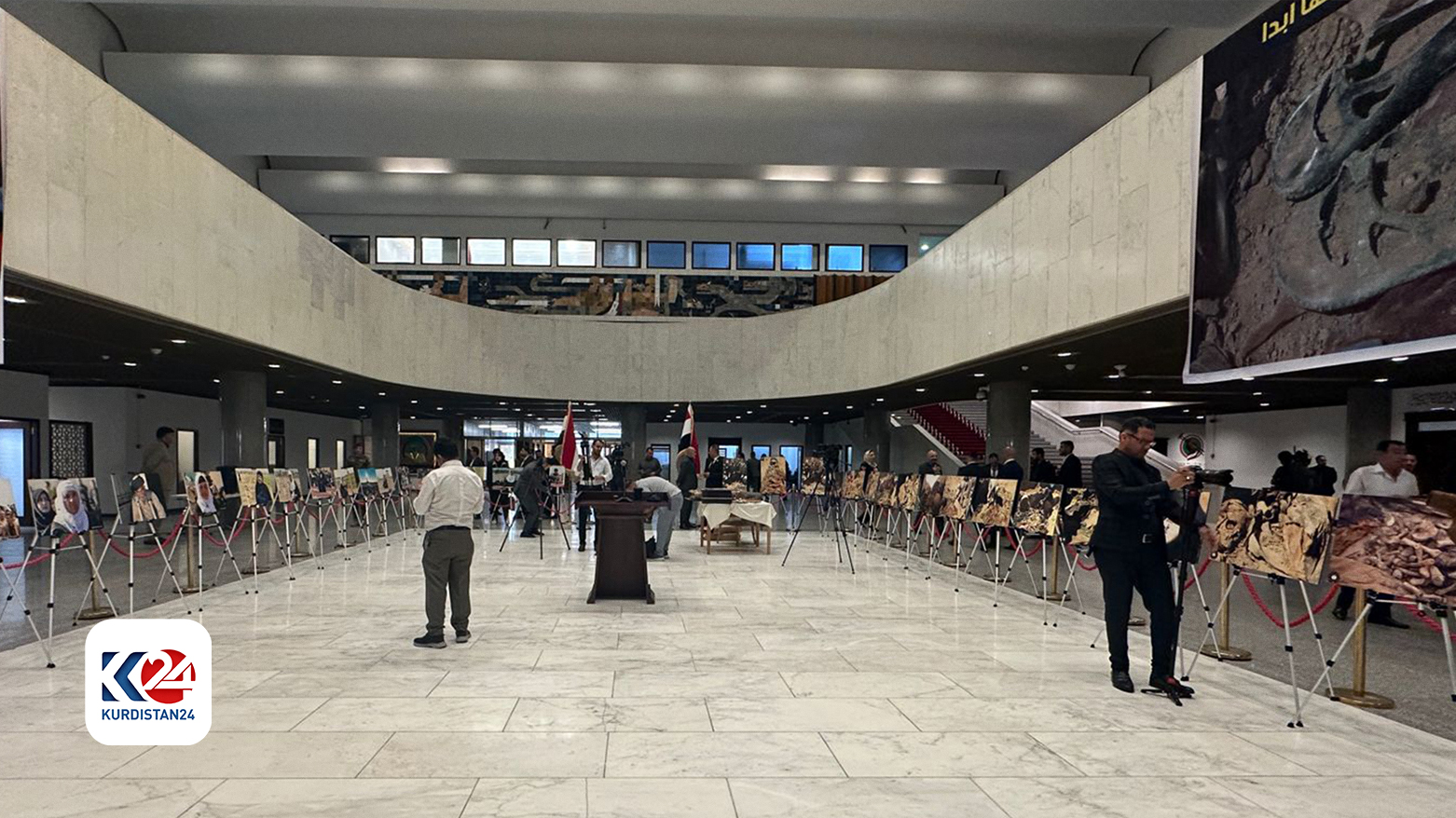Iraqi Parliament commemorates 36th anniversary of Anfal campaign
The presence of Anfal survivors and their families lent a poignant significance to the occasion, amplifying the voices of those affected by the dark chapter in Kurdish history.

ERBIL (Kurdistan 24) – The Iraqi parliament solemnly observed the 36th anniversary of the Anfal massacre perpetrated by the Ba'ath regime in the 1980s. Kurdish factions joined together alongside the relatives of Anfal victims to honor the memory of those who perished in the genocidal campaign.
The commemoration served as a poignant reminder of the atrocities committed against the Kurdish nation during Saddam Hussein's regime, underscoring the enduring impact of the Anfal campaign on Kurdistan's collective memory.
Participants in the parliamentary session paid tribute to the victims of Anfal and reiterated their commitment to seeking justice for those who suffered under Ba'athist oppression. The presence of Anfal survivors and their families lent a poignant significance to the occasion, amplifying the voices of those affected by the dark chapter in Kurdish history.
As Iraq reflects on the 36th anniversary of the Anfal massacre, the solemn ceremony serves as a testament to the resilience of the Kurdish nation and their unwavering determination to commemorate the lives lost during one of the darkest periods in the nation's history.
The Anfal campaign, launched by the Ba'athist regime in the late 1980s, targeted Kurdish civilians and resulted in the mass murder and displacement of thousands of individuals. The anniversary of the Anfal massacre serves as a somber reminder of the grave injustices inflicted upon the Kurdish population and underscores the ongoing quest for truth, accountability, and remembrance.
The Anfal campaign unfolded in multiple stages:
1. The first phase (February 9 to February 23, 1988) targeted the Sargallu and Bargallu areas of the Soordash Township in the Dukan district of Sulaimani province.
2. The second phase (February 22 to April 1, 1988) extended to the Qara Dagh region.
3. The third phase (April 7 to April 20, 1988) encompassed the Garmian areas in Kirkuk province and cities such as Khurmatu, Kalar, Kufri, Darbandikhan, Chamchamal, and others.
4. The fourth phase (May 3 to May 8, 1988) covered the length of the small river, including Agh’jalar, Goptapa, Askar, Sheikh Bzeni, Koya, Khalkan, and Dukan.
5. Phases 5, 6, and 7 (May 15 to August 26, 1988) extended to various regions including Balisan, Shaqlawa, Hiran, Nazanin, Smaquli, Alana Valley, Rawanduz, Choman, Kandil Mountain Range, Ranya, Chwarqurna, Hizop, Bawaji Mountain, some villages of Koya, Dibaga, and Perde.
6. The eighth and final phase (August 25 to September 6, 1988) targeted the Badinan region of Amedi, Duhok, Zakho, Sheikhan, Akre, and Barzan.
Since 2007, the Kurdistan Regional Government (KRG) has designated April 14 as a day of remembrance to honor the victims of the Anfal genocide.